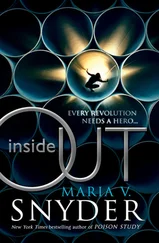Etienne shook his head. “It’s going to be bad,” he said.
“Why don’t you leave?” Tug asked.
Etienne again made that sweeping gesture with his hand, encompassing the complex, his family, their extended relatives, maybe even the country itself. Tug couldn’t tell if this was obstinacy or pride. “This is where we are,” he said.
Meanwhile, Marcie wanted to know how much longer he would be there. He thought he’d be back by August, he told her. “August,” she echoed, her voice tinny with distance, but in it he could hear all the unsaid, freighted things. Soon, he knew, she wanted to start having children. Their life was waiting for them just over the horizon, and she was in a hurry to get there. To think of her putting her dreams on hold was a weight on his heart.
It was not awkward, apparently, for him to tell Grace about this. He spoke as if these words, these emotions, belonged to another person.
“Certain facts are known,” he said. They had been reported, brought to light, so he didn’t need to relate them all over again, did he? The story had already been told. How the gunshots and mortar blasts increased as the army moved closer, how the Interahamwe responded, how the radio blared. Everybody knows this happened. Even in the camps people weren’t safe, and now they had to worry about bombings on top of starvation and disease. Those who could leave did, and there was an epochal movement to the south.
Tug stopped sleeping. The nights were bright with smoke. Then the president was killed, and the murders began in earnest. Children with hatchets. Blood in the streets. Relating this, his voice grew not hoarse with emotion but clipped, the words whittled to precise points. “There was a river,” he said. “You must have seen the pictures. It was piled with bodies. There were always screams in the distance, and sometimes they were close. There were dead children, and live children looking for their dead mothers.”
Within hours most of the white people were evacuated. That’s what happened: they left the country to its murders. He found himself in a hotel room in Nairobi, sitting cross-legged in the bathtub, and couldn’t remember how he had gotten there or how long he was supposed to stay.
In Nairobi people spoke of phone calls in which their friends said good-bye just before they were murdered. Some were calm and resigned; others screamed for help until the very last second of their lives. All of this via telephone. Technology existed to hear the murders, but not to stop them.
Tug shared a hotel room with two other aid workers, and they were cramped but had clean sheets and towels. They couldn’t stand this, or one another, and lacking an outlet for their rage they fought among themselves instead. Tug went down to the bar, and this was when he found the gorilla woman, and spent the night with her, listening without sympathy to the story of her life. Later, one of his roommates spent the night with her too, and said she had brought out a knife, wanting him to hold it to her throat. “She loves danger,” the guy said, raising his eyebrows in sexual implication.
Some people went to Goma to work in the refugee camps. That these refugees were murderers was discussed as little as possible; such were the ethics of aid. Then, when a cholera epidemic spread through the camps, the world finally began to pay attention. When the murderers died.
Tug and his roommates were sent to Entebbe to coordinate a field office. Grateful for work, they bent themselves to the task.
And Marcie, so relieved that he’d been evacuated, begged for him to come home.
“Who are these people?” she said angrily, meaning not the murderers but his supervisors at the NGO. “How can they expect you to do this, to stay on, just to fulfill your contract? This is sadistic. They need to let you come home.” She was crying into the phone.
Tug said nothing. Truthfully she didn’t feel real to him just then — just a voice on the phone, a crackle of sobs.
“I love you,” she said. “Come home to me.”
He stayed as long as he could in Entebbe, and four months later they were allowed back in. Of the spectacular green country he’d first seen, virtually no trace was left. What remained was a place that no one could fall in love with. Every farm had been left untended or destroyed. Kigali stank of rotten bodies, a riot of flies everywhere, and packs of dogs grown so aggressive and fat on human flesh that people were shooting them on sight. Here and there the first exiles were streaming into empty houses, and to see them sweeping the floors was surreal, an act of domestic normalcy patently inadequate to the task of cleaning up what had happened here.
At the complex, everything he’d left behind had been taken, not that there was much besides a few clothes and magazines. There were bullet holes in the wall.
Inside Etienne’s apartment there was no trace of anyone, just a bad smell he couldn’t locate the source of. He stood there sweating, thinking only that he would soon go back to work doling out medicine, salt and sugar solution, water-purification tablets. Then he heard a shuffling noise and braced himself, expecting one of the huge rats he’d seen poking through the piles of garbage. Instead, a bloody heap he had thought was trash shifted itself and came toward him. He took a backward step, then he heard his name.
It was the boy, Yozefu, and Tug was so happy that he embraced him. The boy tried to hug him back, but couldn’t. He smelled terrible, wrapped in torn, dirty blankets, and the light in the room was so dim that it wasn’t until they were outside in the sunny courtyard that Tug realized Yozefu had only one arm.
He had seen a doctor, and a family down the road had been feeding him occasional scraps, but his bandages were dirty and his skin red hot to the touch. Tug took him straight to the hospital for antibiotics. He was due at the camps but stayed on as a doctor cleaned the boy’s wounds and put him on an IV drip. As the fever came down, Yozefu told him what had happened.
His own uncle, his mother’s brother, had come in the night. He said he would hide them in his own house, but this was a lie to get his squad of three into their house. They killed his parents, then raped his sister. Yozefu didn’t use that word, just said they had stuck things into her, including a branch, a bottle. When he yelled at them to stop, they said, “Then you kill her.” Esmeralda looked at him, crying, begging. So he did. He used the machete they’d given him. Then his uncle took it back, hacked off his arm at the elbow, and left him to die.
He stayed in the house with the bodies of his family until another uncle found him and brought him to the doctor. But they had to move the medical facility because of the bombing and he was on his own again, so he went back to the house. In the time he’d been gone the bodies had been dragged into the courtyard and burned. He cleaned the house and courtyard and hid himself away.
He never once told Tug how he felt, or used a single emotional word. He spoke only of actions and facts.
Tug spent two days and nights at the hospital with Yozefu, but the boy had a septic infection that the doctors couldn’t stop. It was three in the morning when he died. He was eleven years old.
And that was it. Tug became a zombie, useless in the field, and his supervisors ordered him first to Nairobi, then to Entebbe, then to London, and finally he landed in Montreal. At the airport, Marcie crushed him in her arms. Once at home, he took a shower and changed into his clean old clothes. It was August and children were playing on the street outside, shouting and laughing. His sister and her children came to see him, as did various friends. At night, in bed, Marcie caressed his shoulder with the tips of her fingers, a touch that didn’t ask for anything, that only sought to assure him that he wasn’t alone.
Читать дальше












